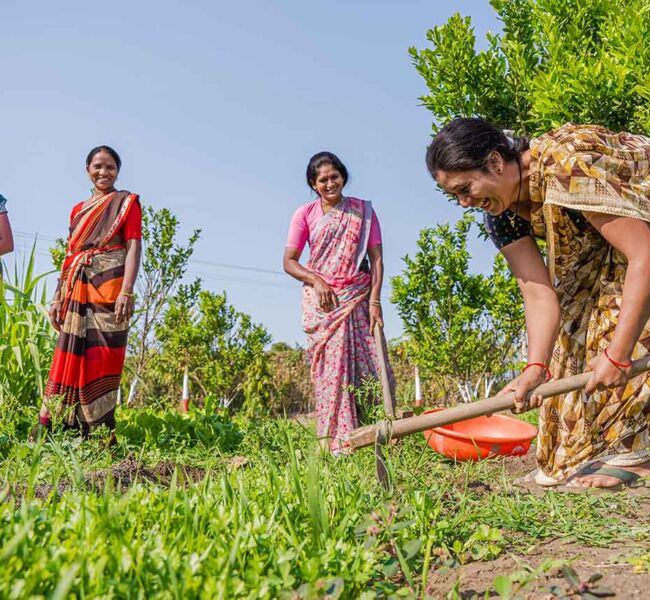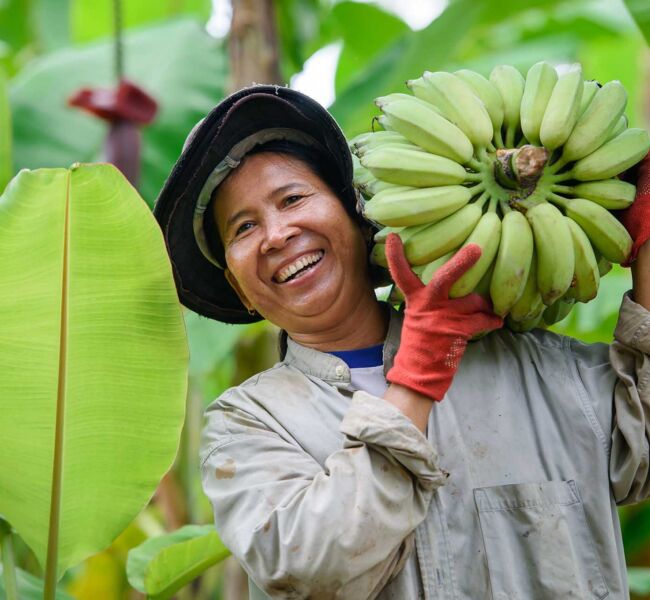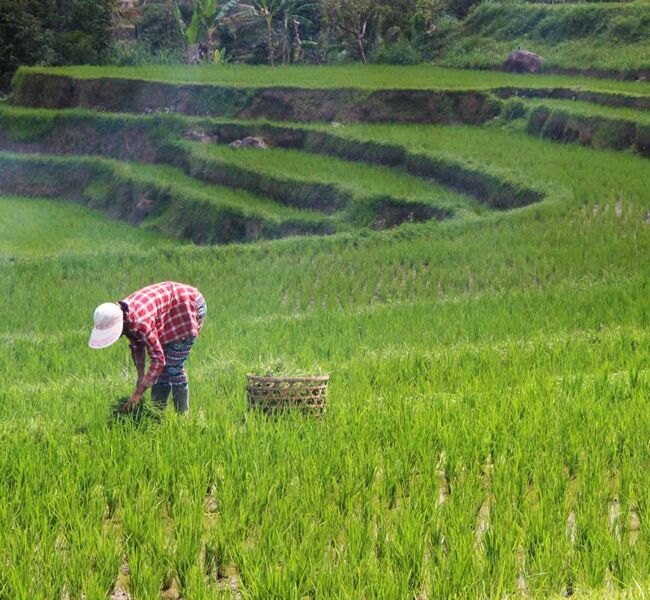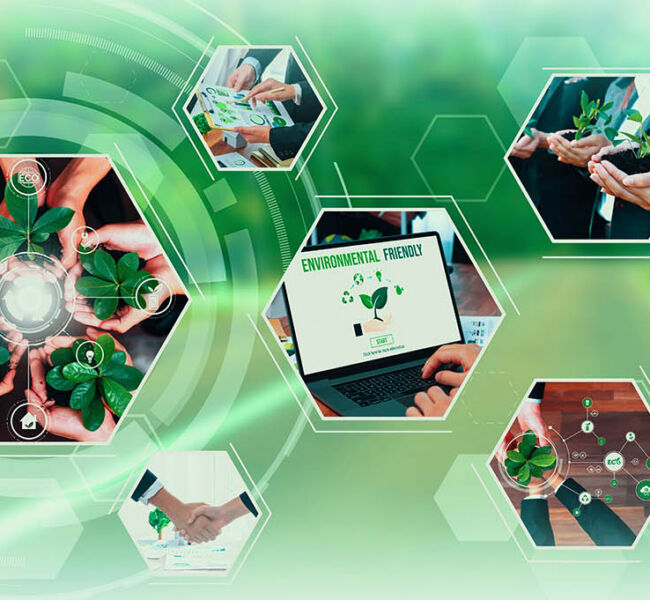Q&A with Melanie Levine, Global Agribusiness Alliance
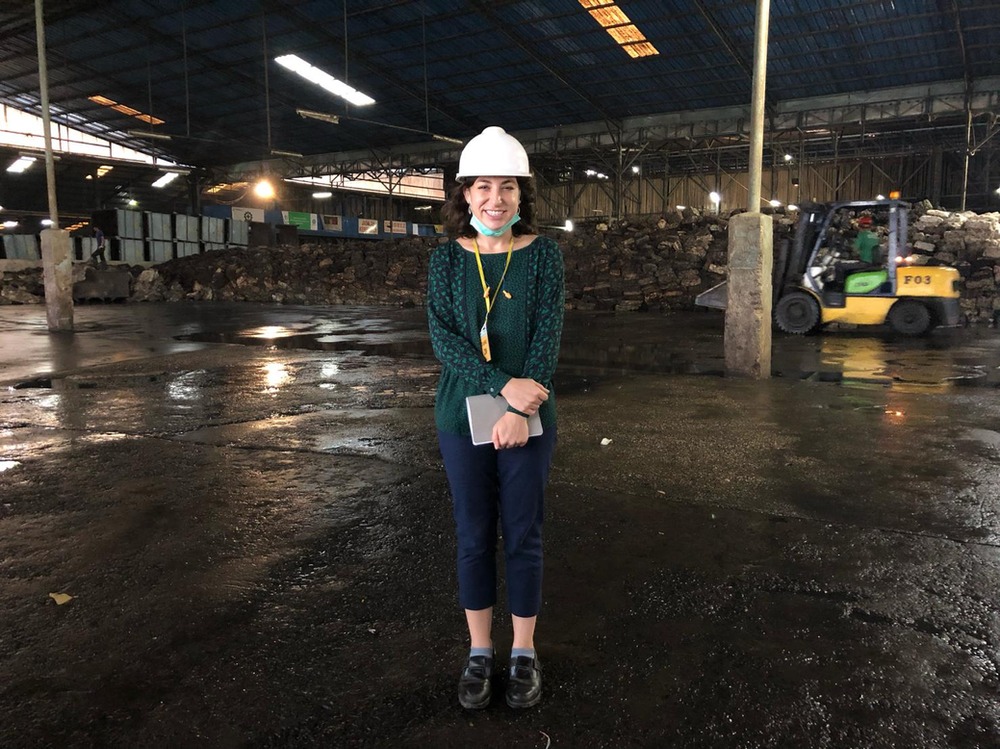
2020 marks several important milestones in the development world and puts us only a decade away from the target for the UN Sustainable Development Goals. As businesses, governments, NGOs and civil society grapple with some of the most complex and ambitious global issues, we see a role for everyone to play in making 2020 the year of transformative change.
In this first article of a series where Spurwing interviews sustainability leads, we spoke to Melanie Levine from the Global Agribusiness Alliance (GAA) about top sustainability themes for the agriculture world in 2020 and how the partnership is working with supply-side companies to address environmental, social and sustainability challenges.
Hi Melanie, thanks for speaking with us. What do your members say are the most pressing sustainability issues right now for the agriculture industry?
Many critical sustainability challenges for the agriculture sector stem from climate change. Supply-side agribusinesses are very concerned with mitigating the effects of climate change across their operations. This includes improving practices to build resilience against extreme and fluctuating weather patterns; navigating the ever-increasing stress on natural resources like water and soil; battling frequent and disastrous forest fires globally…the list goes on. These pressing issues require the proactive attention of supply-side companies, who are very aware of the implications of climate change on business vitality and farmer livelihoods in their supply chains.
What are your members looking out for in 2020?
2020 will be a year of landmark convenings on climate change and the role of the agriculture sector in reaching the SDGs. GAA is looking ahead to the IUCN World Conservation Congress, the UN Forum on Business and Human Rights, World Water Week, and more—during which priorities around land use systems will be discussed and established.
Supply-side companies bring critical perspectives and recommendations to these conversations based on their role as growers or as operators closest to farm-gate. It is key for upstream agribusinesses to complement the role that consumer-facing brands have played in developing sustainability strategy over the past decade.
From the GAA’s perspective, what major changes need to happen in the next 10 years if we’re to achieve the SDGs?
Agribusinesses, NGOs, and governments trying to shape their respective sustainability agendas in isolation will not have success; it is imperative to combine efforts through multi-stakeholder partnerships and share learnings at both a global- and landscape-level to accelerate sustainable development.
The language we choose when setting policy directions will be very important; it influences investment in technology and on-the-ground program development. That’s why communications and collaboration matter so much.
For example, to meet zero-deforestation targets this year we are seeing some commodity traders (based on customer and NGO pressure) dropping suppliers that deforest or are non-compliant. This hasn’t achieved a halt in deforestation, however, as those growers are simply finding leakage markets. And it hasn’t addressed deforestation linked to small farmers. What we need to do instead is help build the capacity of suppliers to reforest, provide better care for their land and make steady improvements – progress rather than perfection.
“Climate anxiety” became a commonplace phrase in 2019 and we saw a slew of scientific research revealing the real, irreversible damage of human behaviour. Against this backdrop of fear, stress and negativity for the future, are there any positive signs of change for good – particularly in Asia?
There are many reasons to be optimistic! We’ve seen NGOs, the private sector and governments operating together in unprecedented ways through partnerships in the landscape, for example, or our collaboration on creative policies to address food loss and waste. Agriculture and land use systems are topping the agenda at key policy convenings globally; the increased attention on and investment in strengthening the sector is a positive sign. Investors are exploring ‘green financing’ mechanisms and sustainability-linked loans—creative approaches to fuelling and rewarding best practice in sustainable agriculture that I foresee will become more sophisticated and commonplace over the next decade.
The implications of technological innovation for sustainable agricultural practices at scale are also positive. Farmers and supply chain actors in rural communities are more connected than ever, and this connectivity brings opportunities for capacity building, sharing data points such as weather information and the presence of pests and disease, access to market information, and more. I think to GAA’s creation of a digital finance platform that links small and medium enterprises with finance providers through an online portal. Approaches like this would not have been practical ten years ago, but we are able to explore and leverage them now and in the future.
What can we expect from GAA as you look towards the future?
GAA plans to convene members around issue- and commodity-specific challenges such as forest fire prevention and water scarcity in ‘hot spots’ where these challenges are the most pressing. Through collective learning journeys, member companies will have the opportunity to send operational staff to sites where members are implementing new or innovative sustainability approaches in their supply chains—this in-person engagement is something I see growing and strengthening the impact of GAA in the future.
I foresee that our membership will grow; we are an inclusive platform engaging supply-side companies no matter their size or stage in their sustainability journey. GAA advocates continuous improvement in sustainability performance through a member-developed framework, helping companies newer to sustainability strategy learn from the more mature agribusinesses. As climate change and policy developments pressure companies to bring sustainability to the core of their business strategies, we offer a space for agribusiness companies to strengthen their own approaches and align with the SDGs.
About the Global Agribusiness Alliance (GAA):
Through GAA, agribusinesses work together to address concerns such as climate change, environmental resilience and sustainable agriculture through collective action and the sharing of best practices. GAA operates across four workstreams to strengthen agribusiness impact in addressing climate change and its effects: sustainable landscapes, rural livelihoods, water stewardship, and tackling agricultural product loss and waste. GAA leverages pooled funds and in-kind donor support for companies to use to explore new approaches to responsible water management or quantifying food loss in their supply chains, for example. GAA offers a platform for member companies’ sustainability leaders to convene and share on key interventions and learnings related to challenges all many agribusinesses are facing, such as how to develop a successful landscape partnership or connect farmers with finance so they can invest in more sophisticated farming technologies.
Are you thinking about sustainability communications for 2020?
Contact hello@spurwingcomms.com if you’re passionate about driving change and being at the forefront of transformative discussions. We can help advise you or your organisation on a stand-out approach to communications.

